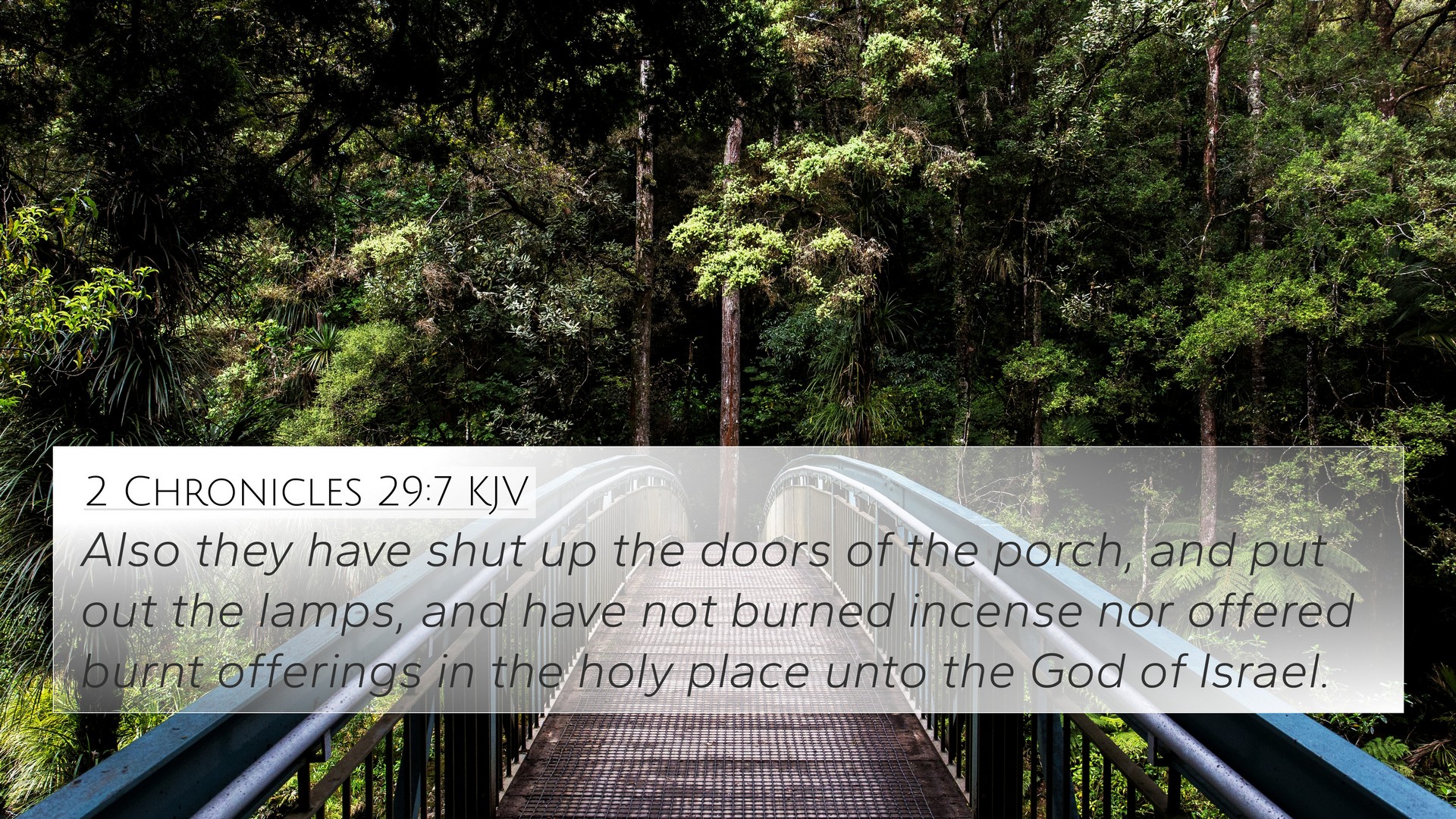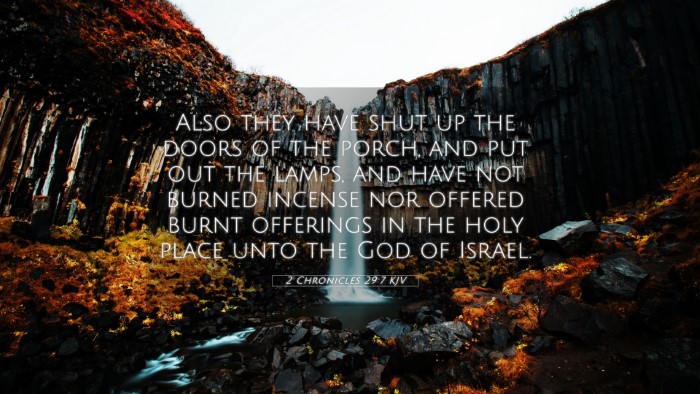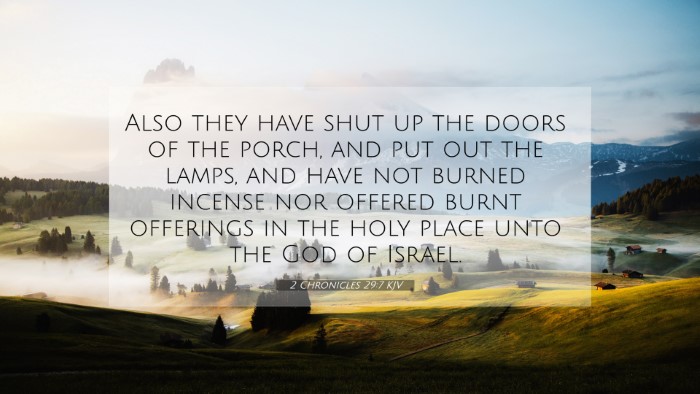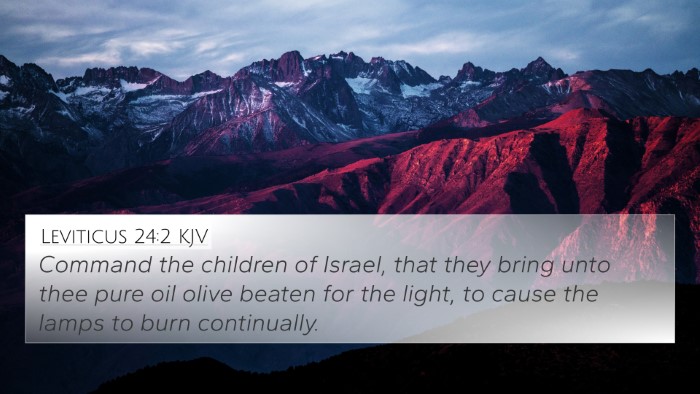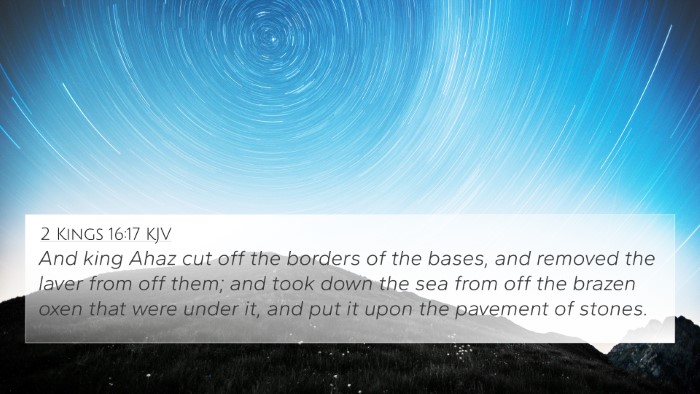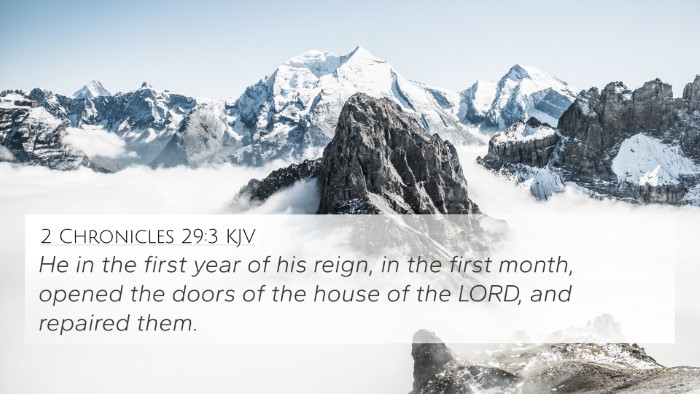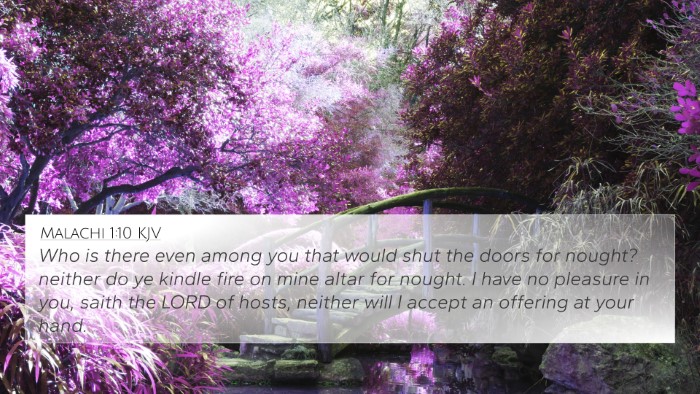Understanding 2 Chronicles 29:7
Bible Verse: 2 Chronicles 29:7
This verse states: "And they have shut up the doors of the porch, and put out the lamps, and have not burned incense nor offered burnt offerings in the holy place unto the God of Israel."
Meaning and Interpretation
The context of this verse revolves around King Hezekiah's efforts to restore true worship in a time when the temple worship had been neglected. This verse highlights the severity of spiritual decline in Israel, where essential acts of worship had ceased. The commentaries provide insights into the implications of this verse for understanding Israel's spiritual condition at the time.
Key Insights from Commentaries
- Matthew Henry: Emphasizes that the closing of the doors of the temple creates a vivid picture of the cessation of worship and a stark contrast to the service of God that should be ongoing. Henry points out that neglecting worship leads to spiritual decay.
- Albert Barnes: Notes the significance of the lamps and incense in the temple as symbols of worship and divine presence. The extinguishing of lamps indicates a loss of spiritual light, while the halted offerings represent a breach in the covenant relationship with God.
- Adam Clarke: Provides historical context, explaining that the actions attributed to previous kings were indicative of a broader national decline. Clarke argues that Hezekiah's reforms were aimed at reversing this trend and restoring the people's relationship with God.
Thematic Bible Verse Connections
Understanding 2 Chronicles 29:7 requires recognizing its thematic connections throughout Scripture. The cessation of worship and neglect of the temple serve as stern warnings reflected in various passages:
- Malachi 1:7-8: Connects with the concept of dishonoring God through neglect and improper worship practices.
- Psalms 27:4: Highlights the desire for continual communion with God, contrasting with the spiritual void depicted in 2 Chronicles 29:7.
- Isaiah 1:11-15: Addresses Israel's futile religious practices when the heart is not in alignment with God’s will.
- 1 Kings 15:26: Describes the consequences of the actions of previous kings leading to the decay of worship.
- 2 Chronicles 30:7: Reinforces Hezekiah’s call for returning to true worship and turning away from former idolatries.
- Exodus 30:7-8: Provides insight into God’s command regarding incense burning, illustrating its importance in worship.
- Hebrews 10:25: Encourages believers to not forsake assembling together, echoing the importance of communal worship implied in the temple practices.
- Matthew 5:14: Speaks to the lost light when spiritual practices are neglected, linking back to the extinguished lamps in the temple.
- Acts 2:46-47: Highlights the importance of communal worship and can draw parallels to what Hezekiah sought to restore.
Cross-Referencing Bible Texts
Cross-referencing this verse with others helps deepen the understanding of its implications. Here are some tools and methods that can support such analysis:
- Bible Concordance: Utilize a concordance to find related words and themes.
- Bible Cross-Reference Guide: A guide can point to verses that expand on the themes presented in 2 Chronicles 29:7.
- Cross-Reference Bible Study: A methodical approach to studying Scripture through interconnected passages enhances comprehension.
- Identifying Connections between Old and New Testament: Viewing how themes of worship transcend both Testaments can enrich one’s spiritual insights.
- Comprehensive Bible Cross-Reference Materials: Utilize available resources to understand the interconnectedness of Scripture.
Conclusion
2 Chronicles 29:7 serves as a stark reminder of the importance of maintaining true worship and devotion to God. The verse reveals the dire consequences of spiritual neglect and the call to restoration evident in prayer, worship, and sacrifice. The comprehensive understanding of this verse is reinforced through careful thematic connections and the use of cross-referencing tools.
